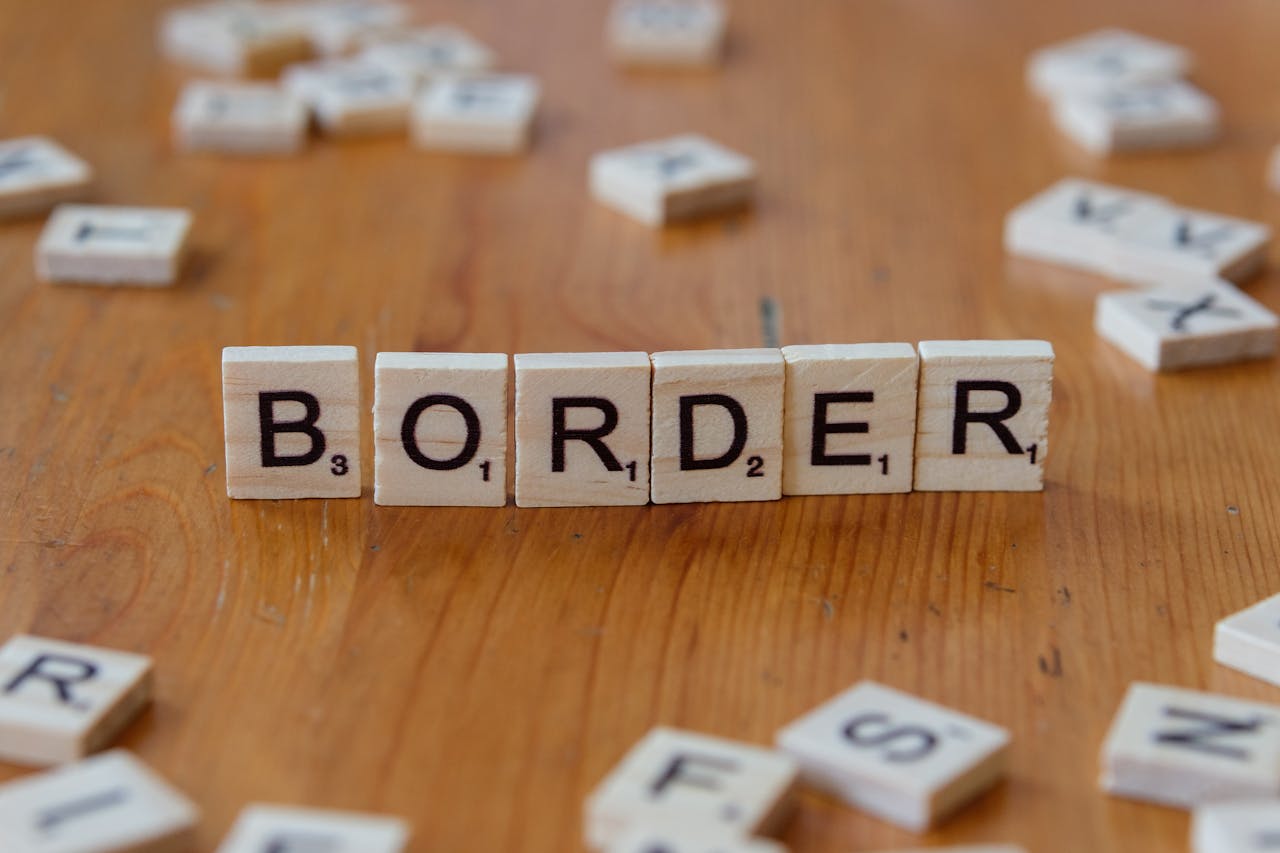When applying for a spouse visa, whether it’s a marriage-based green card or a UK spouse visa, letters of support from friends and family can significantly strengthen your application. These personal testimonials provide immigration officers with third-party verification of your relationship’s authenticity and help paint a complete picture of your marriage beyond official documents.
A well-written letter of support serves as powerful evidence that your marriage is genuine and entered into in good faith. In marriage-based green card cases, USCIS is looking for evidence of a bona fide marriage. A bona fide marriage is another way of saying a real marriage, entered into in good faith. Immigration authorities scrutinize spouse visa applications carefully, and personal testimonials from people who know you both can make the difference between approval and denial.
Your support letters should complement other evidence in your spouse visa application, such as joint financial records, photographs, and travel documents. While these letters aren’t always required, they can be particularly valuable if you have limited documentary evidence or if there are aspects of your relationship that need additional explanation. This comprehensive guide will show you exactly what to include in effective support letters that maximize your visa approval chances.
Understanding the Purpose of Support Letters
Letters of support for spouse visas serve multiple critical functions in your immigration case. They provide personal testimony about the authenticity of your relationship, offer insight into your character and marriage dynamics, demonstrate community recognition of your union, and help address any potential concerns immigration officers might have about your case.
A supporting letter should outline basic information about you and your spouse, including your history together, details about your relationship, and your plans for the future. Ultimately, it should help to clarify and confirm details that might not be able to be covered by your other pieces of evidence.
The primary goal is proving your marriage is bona fide rather than entered into solely for immigration benefits. Immigration fraud through sham marriages is a serious concern for authorities, and genuine support letters help distinguish legitimate relationships from fraudulent arrangements.
Support letters also humanize your application by showing immigration officers that real people have witnessed and can vouch for your relationship. This personal element can be particularly important in cases where couples have unique circumstances, cultural differences, or limited time together due to visa restrictions.
Different visa categories may place varying emphasis on support letters. For US marriage-based green cards, these letters help establish the bona fide nature of the marriage. For UK spouse visas, they can support relationship evidence requirements and demonstrate community ties.
Who Should Write Your Support Letters
The most effective support letters come from people who know both spouses well and have observed your relationship over time. Family members, close friends, colleagues, religious leaders, and community members who have witnessed your relationship development make ideal letter writers.
Parents and siblings often provide the most compelling testimonials because they typically have the longest history with one or both spouses and can speak to character development and relationship milestones. Their letters carry particular weight because family members are expected to know intimate details about genuine relationships.
Close friends who have spent significant time with you as a couple can provide valuable perspectives on your day-to-day interactions, shared interests, and relationship dynamics. Choose friends who can provide specific examples and anecdotes rather than generic endorsements.
Professional contacts such as employers, colleagues, or business partners can attest to your character and stability while also confirming details about your life circumstances. These letters are particularly valuable if the writers have interacted with both spouses in professional settings.
Religious leaders, community organizers, and other respected community figures add credibility to your case. Their professional standing and reputation for integrity make their testimonials particularly persuasive to immigration officers.
Avoid letters from people who barely know you or your spouse, individuals with criminal backgrounds, or anyone who might have credibility issues. Quality matters more than quantity – three or four strong letters are better than numerous weak ones.
Essential Elements Every Letter Must Include
Every effective support letter must contain specific identifying information and sworn statements to be credible and useful. Start with the letter writer’s full name, address, phone number, email, and relationship to you and your spouse. This information establishes the writer’s credibility and allows immigration officials to verify their identity if necessary.
Include a clear statement about how long the writer has known each spouse and in what capacity. Be specific about dates and circumstances of first meetings, frequency of contact, and the nature of your relationships with the letter writer.
The letter should contain a sworn statement confirming the information is true and accurate. For example, you can include, “I swear, under penalty of perjury, that the foregoing is true and correct to the best of my knowledge.” This legal language demonstrates the writer understands the seriousness of providing false information to immigration authorities.
Each letter must be signed and dated by the writer. Unsigned letters or those with questionable signatures can raise authenticity concerns and may be disregarded by immigration officers.
Include the writer’s occupation and professional credentials when relevant. This information helps establish their credibility and community standing, which can influence how much weight immigration officers give to their testimony.
Specific Content to Include
The body of each support letter should provide detailed, specific information about your relationship that demonstrates its authenticity. To make the immigration letter of support more compelling, provide concrete examples that highlight your family member’s positive traits and contributions: Examples: Share specific stories or examples that demonstrate their good character, work ethic, or role in the family or community.
Describe how the writer first learned about your relationship and their initial impressions. Include details about engagement announcements, wedding planning involvement, or other relationship milestones they witnessed firsthand.
Document interactions the writer has had with both spouses together and separately. Describe social gatherings, family events, or casual visits where they observed your relationship dynamics. Specific examples of affection, mutual support, and partnership are particularly valuable.
Include observations about your living arrangements, shared responsibilities, and daily life patterns. Writers who have visited your home can describe seeing personal belongings mixed together, joint decorating decisions, or evidence of cohabitation.
Address your future plans as discussed with the letter writer. Immigration officers want to see evidence that couples have discussed and planned their life together, including career goals, family planning, and long-term residence intentions.
Mention shared interests, hobbies, or activities the writer has observed. These details help demonstrate compatibility and genuine partnership beyond just cohabitation or legal marriage.
Relationship Timeline and Milestones
Support letters should include a chronological perspective on your relationship development from the writer’s viewpoint. Start with when and how the writer first learned about your relationship, including their initial impressions and any concerns they may have had.
Document key relationship milestones the writer witnessed or learned about, such as engagement announcements, wedding planning participation, ceremony attendance, and post-wedding celebrations. Be specific about dates and the writer’s level of involvement in these events.
Describe how your relationship has evolved over time as observed by the letter writer. Include examples of how you’ve grown as a couple, overcome challenges together, or deepened your commitment to each other.
Address any periods of separation due to visa processing, work obligations, or other circumstances. Explain how the couple maintained their relationship during separations and the writer’s observations about reunion periods.
Include information about major life decisions you’ve made together, such as career changes, relocations, major purchases, or family planning decisions that the letter writer knows about or witnessed.
Character References and Personal Qualities
Strong support letters include detailed character assessments of both spouses and observations about how they complement each other. Writers should describe personal qualities they’ve observed in each spouse and how these qualities contribute to a successful marriage.
Include specific examples of character traits such as honesty, reliability, kindness, work ethic, and family commitment. Rahul Ram Gupta has been my close friend since 1995, and I have known his wife, Manisha Devi Agrawal, since their marriage in February 2004. I have visited their house frequently, around once every 2 weeks, and they seem to be a happily married couple. This example shows specific timeframes and regular observation.
Describe how each spouse treats the other, including examples of respect, affection, support during difficult times, and shared decision-making. These observations help demonstrate the genuine nature of your partnership.
Address any cultural differences and how the couple navigates them successfully. This is particularly important for international marriages where cultural adaptation demonstrates relationship authenticity and long-term viability.
Include observations about financial responsibility, such as shared budgeting, joint purchases, or mutual support during financial challenges. These details help establish the practical aspects of your life partnership.
What Not to Include
Several types of content can actually harm your spouse visa application and should be avoided in support letters. Don’t include speculation about immigration law or legal opinions about your case. Letter writers should stick to personal observations and experiences rather than attempting legal analysis.
Avoid generic statements that could apply to any couple. Phrases like “they seem happy together” or “they make a nice couple” are too vague to be persuasive. Immigration officers need specific, detailed observations that demonstrate intimate knowledge of your relationship.
Don’t include negative information about either spouse or your relationship challenges unless directly relevant to addressing specific concerns. While honesty is important, support letters should focus on positive evidence of your genuine marriage.
Avoid discussing immigration strategies, timeline pressures, or desperation to obtain the visa. These topics can raise concerns about the marriage’s motivations and should be left out of support letters entirely.
Don’t include information the writer couldn’t reasonably know through personal observation. Secondhand information or assumptions undermine the letter’s credibility and can raise questions about the writer’s honesty.
Formatting and Presentation Guidelines
Professional presentation enhances the credibility of support letters and demonstrates the seriousness with which writers approach their testimonials. Use standard business letter format with the date, recipient address (if known), formal salutation, body paragraphs, closing, and signature.
Letters should be typed on letterhead when possible, particularly for professional or organizational endorsements. Personal letters should use quality paper and professional fonts to convey respect for the process.
Keep letters to 1-3 pages in length. Longer letters may lose the reader’s attention, while very short letters may appear superficial or rushed. Focus on quality content rather than length.
Include contact information clearly and prominently so immigration officers can verify the writer’s identity if necessary. Some writers may want to include their professional titles or credentials to establish their credibility.
Ensure letters are dated recently and signed in ink. Electronic signatures may be acceptable in some cases, but traditional signatures often appear more formal and credible.
Common Mistakes to Avoid
Many support letters fail to effectively support spouse visa applications due to common errors that undermine their credibility or usefulness. One frequent mistake is using nearly identical language across multiple letters, which suggests coordination rather than independent observations.
Form letters or templates filled in with minimal personalization appear generic and may actually harm your case by suggesting the relationships aren’t genuine enough to warrant personalized testimonials.
Factual inconsistencies between different support letters or between letters and other application documents can raise red flags about the relationship’s authenticity. Ensure all writers have accurate information about basic facts like marriage date, timeline, and key events.
Letters that focus too heavily on immigration issues rather than relationship evidence can backfire by appearing to prioritize visa approval over genuine relationship testimony.
Waiting until the last minute to request support letters often results in rushed, low-quality testimonials. Give writers adequate time to craft thoughtful, detailed letters that truly support your case.
Sample Letter Structure
An effective support letter follows a logical structure that presents information clearly and persuasively. Begin with a formal header including the writer’s contact information and the letter’s date.
Open with a clear statement of purpose: “I am writing to provide a character reference and relationship testimony for [names] in support of their spouse visa application.” This immediately establishes the letter’s purpose and context.
Introduce yourself and explain your relationship to both spouses, including how long you’ve known each person and in what capacity. This establishes your credibility as a witness to their relationship.
Provide the main body of testimony using specific examples and chronological organization when possible. Focus on concrete observations rather than general opinions or assumptions.
Conclude with a strong endorsement of the couple and their relationship, reaffirming your belief in their genuine marriage and your willingness to provide additional information if needed.
Close formally with “Sincerely” or “Respectfully,” followed by your signature and printed name.
Maximizing the Impact of Your Support Letters
Strategic selection and coordination of support letters can significantly enhance their impact on your spouse visa application. Choose writers who can provide different perspectives on your relationship – family members, friends, colleagues, and community members each offer unique viewpoints.
Provide your letter writers with basic factual information about your relationship timeline, important dates, and key events to ensure consistency across all testimonials. However, avoid scripting their personal observations or experiences.
Consider the cultural background and credibility of your letter writers, particularly for international spouse visa applications. Writers who understand both cultures involved may provide particularly valuable perspectives on your relationship.
Time your letter requests appropriately to allow writers sufficient time for thoughtful composition while ensuring the letters remain current for your application submission.
Building Your Support Network
Effective support letters are just one component of a strong spouse visa application, but they can provide crucial third-party validation of your relationship’s authenticity. When combined with comprehensive documentary evidence, these personal testimonials help create a complete picture of your genuine marriage.
Remember that quality matters more than quantity when it comes to support letters. Focus on obtaining detailed, specific testimonials from credible writers who have meaningful knowledge of your relationship rather than collecting numerous generic endorsements.
The time and effort invested in securing strong support letters often pays dividends in visa approval success. These letters provide immigration officers with personal insights that formal documents cannot convey, helping to humanize your application and demonstrate the genuine nature of your marriage.
Your support letters should work together with all other evidence in your application to tell a consistent, compelling story about your authentic relationship and your commitment to building a life together in your destination country.
Frequently Asked Questions
How many support letters should I include with my spouse visa application? Generally, 3-5 well-written letters from different types of relationships (family, friends, colleagues) are more effective than numerous generic letters. Quality and diversity of perspectives matter more than quantity.
Can support letters be handwritten or must they be typed? While handwritten letters are acceptable, typed letters appear more professional and are easier for immigration officers to read. However, the signature should always be handwritten in ink.
Should support letters be notarized? Notarization isn’t typically required for support letters, but it can add credibility. Check the specific requirements for your visa type and jurisdiction, as some may require notarized statements.
What if the letter writer doesn’t speak English well? Letters can be written in the writer’s native language with a certified translation attached, or the writer can work with someone to help translate their thoughts into English while maintaining their authentic voice.
How recent should support letters be? Support letters should be dated within 30-60 days of your application submission to ensure they reflect current observations and maintain relevance to your case.



